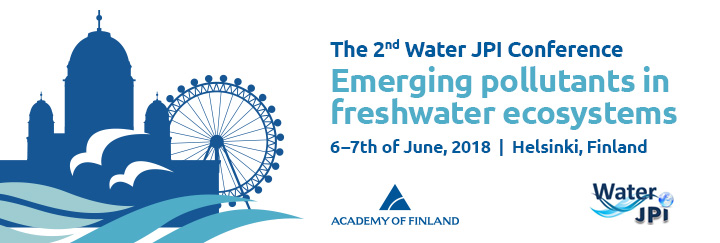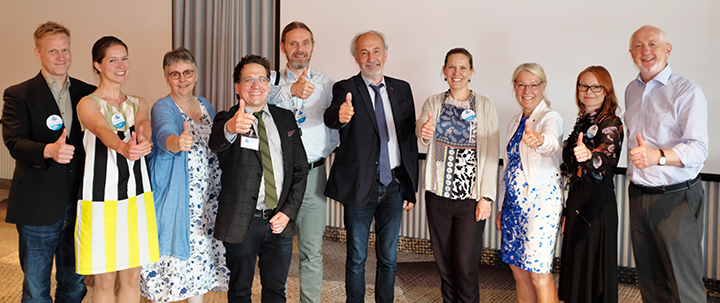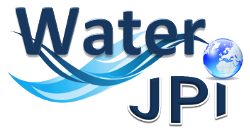Greetings from Water JPI Chair Maurice Heral


 The 2nd Water JPI Conference was held in Helsinki, June 2018. Please find below the excellent conclusion of the talks and discussions of the conference by Maurice Heral, Water JPI Chair:
The 2nd Water JPI Conference was held in Helsinki, June 2018. Please find below the excellent conclusion of the talks and discussions of the conference by Maurice Heral, Water JPI Chair:
”We need to recognise that emerging pollutants are a major issue for Human Health and Ecosystems”.
I would like to develop my concluding words along seven items:
As first one, we need to recognise that emerging pollutants are a major issue for Human Health and Ecosystems. Key figures have been provided by NORMAN (700 emerging contaminants, 40 new chemicals per hour) or JPI AMR (more than 10 million deaths per year in 2050 due to antimicrobial resistance, more than cancers). I could illustrate also with some real cases, such as the Chlordecon, a banana pesticide impacting population in Guadeloupe or the Tributyltin impact. Banning such substances from the market requires many years, sometime decades… and even more for getting rid of their impacts in the environment.
Secondly, we should promote solutions for reducing the impacts, which means acting from monitoring to more integrated approaches based on the precautionary principle: 1.Identifying sources and effects / impacts to health and ecosystems 2.Qualifying and quantifying risk 3.Promoting innovative treatments, securing water reuse as the water resources will be insufficient for all required needs. 4.Developing alternative products for pesticides or antibiotics, including Nature-Based Solutions molecules
My third take-home message will be that there is a need to change the landscape, in particular in terms of consumption (in diet, in drugs, pesticides use) to better use our scarce resources. We are all concerned. This will require to work with different stakeholders (i.e. policy-makers, NGOs) and therefore different types of actions / skills: for formulating recommendations as those presented in the NEREUS Cost Action presented this afternoon, supporting the integration of innovative solutions in policies, or advising industries for alternative options.
Fourthly, we have to emphasise that we need more pluri-disciplinarity and trans-disciplinarity for tackling global challenges
- From soils to land, rivers and groundwater resources to coastal areas,
- From ecosystems to human health
- To different users (i.e. Agriculture, industrial sectors…)
- In cooperation with the other initiatives, in particular the JPIs (OCEANS, FACCE, AMR, CLIMATE…).
As Fifth recommendation, in addition to research and innovation development, we need to do more on knowledge transfer, to bridge with citizen, economic sectors and policy-makers. This is crucial for building the necessary trust in innovative solutions.
During the conference, it was many times mentioned that some extra efforts should be done for summarising key research findings and transforming these in policy briefs for impacting policy development and implementation. Becoming a knowledge broker will require some communication professionals.
Sixthly, what should be the role of the JPIs in this context? Why are they unique?
JPIS are not instruments, they are acting on long-term, for aligning national programmes of the members countries to European ones, maximising efforts. National research and innovation programmes represent 88% of public RDI expenditures in Europe. These multinational initiatives also benefit to national levels, with a broader knowledge sharing.
Considering the topic of this conference, the Water JPI has launched a Joint Transnational Call in 2013 (leading to the funding of 7 projects), a knowledge hub on this issue with a seed group of 24 scientists for becoming more active for knowledge transfer . We will have in the upcoming months a second call in cooperation with the JPIs OCEANS and AMR (Anti-Microbial Resistance). It is a nice example of long-term action since 10 years.
What would be the JPI position in the future Framework Programme? This is quite uncertain as the European Commission wants to define scientific priorities. Will these EC priorities meet the JPI priorities expressed by their memberships? Will they converge? This is the work to be done in the upcoming year with the support of all the member states.
Finally, I would like to thank Academy of Finland for the excellent work for organising the second Water JPI conference and for the large role they are playing in the Water JPI actions. . With 210 attendees from 25 countries, this is a success. Thanks also to the Finnish Ministries and Research Institutes which contribute to this event. Thanks to all speakers and participants.
See you soon!
Maurice Heral
Thank you all for your participation!


